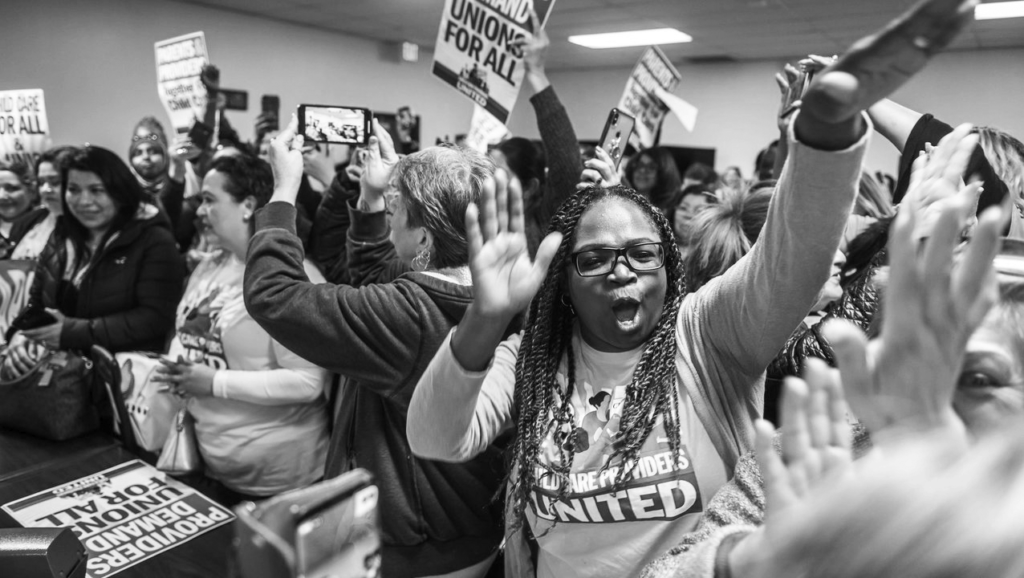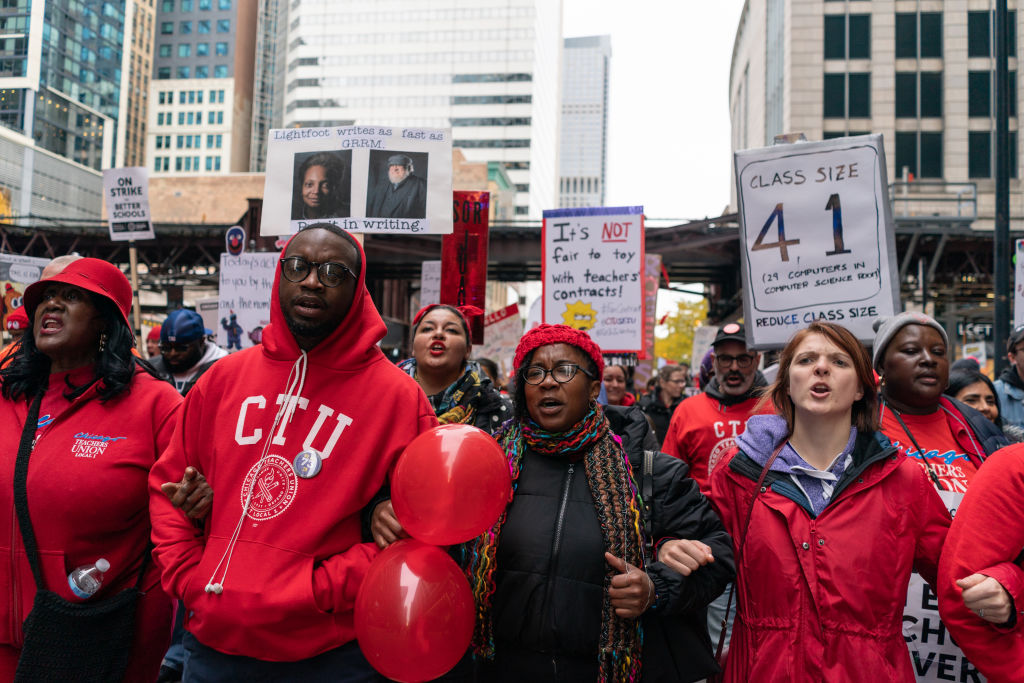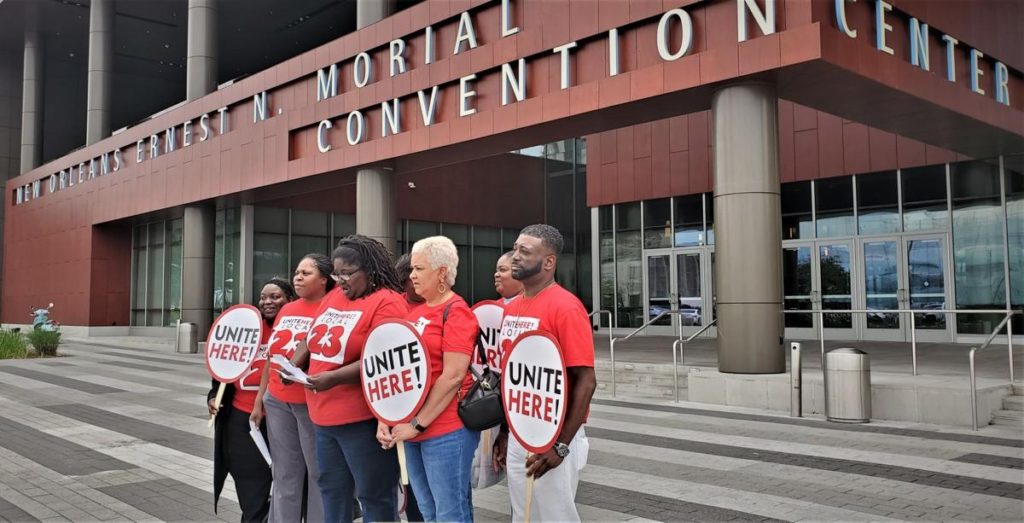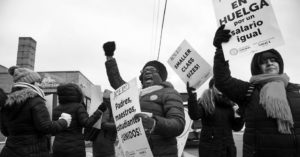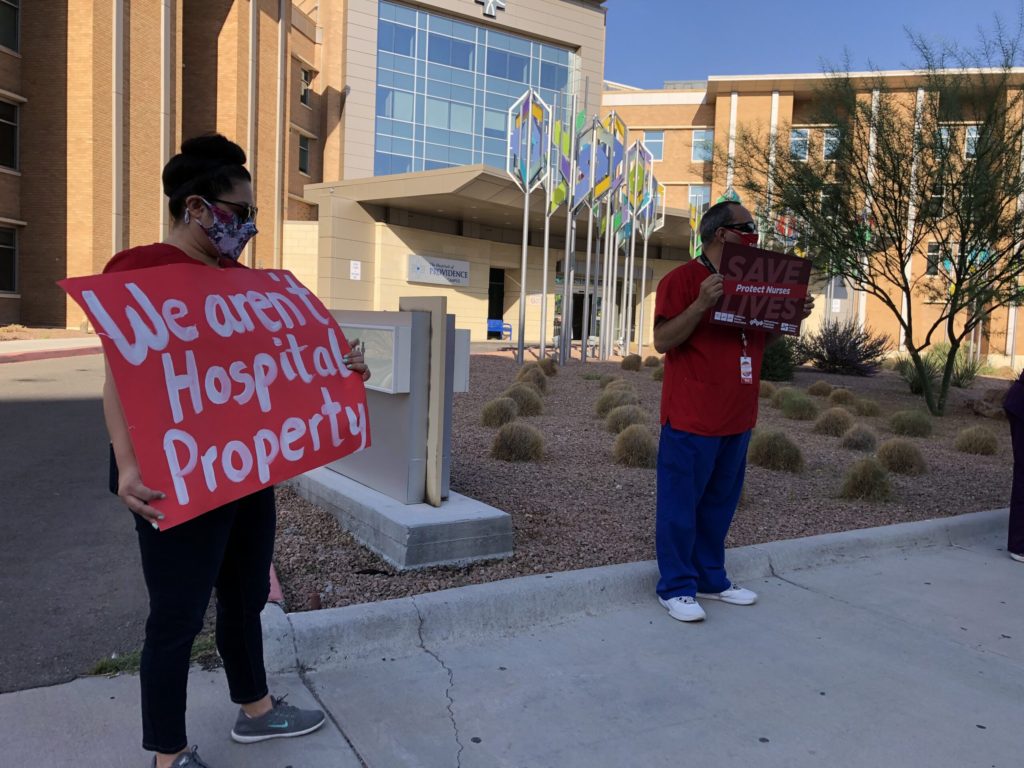
On August 5, members of National Nurses United (NNU) held more than 200 actions inside and outside hospital facilities across the country. They are demanding emergency production of PPE and cash payments, extended unemployment benefits, and daycare subsidies through the end of 2020 to support families in crisis.
“Nurses know that this country’s rampant social, economic, and racial injustice has been killing our patients all along. COVID-19 is just forcing us as a society to face these problems,” said Bonnie Castillo, RN and NNU executive director. “These recent COVID surges and uncontrolled infections and deaths, the failure of employers to protect our nurses and other workers, the outrageously high rates of unemployment and hunger, the totalitarian crackdown on protesters — every crisis we are seeing now can be traced back to our failure to value human lives over profit.”
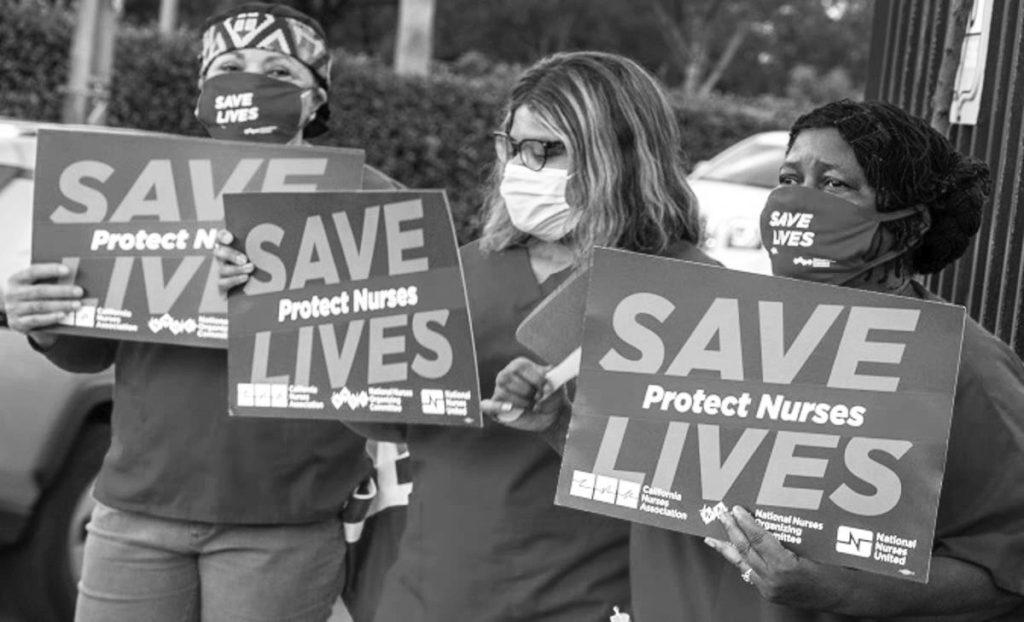
“Nurses are still at risk,” said Mary C. Turner, an intensive care unit RN and president of the Minnesota Nurses Association, whose members are participating in the actions. “We still reuse PPE that was meant to be discarded. We still care for COVID-19 patients and non-COVID patients at the same time. And we still struggle to protect ourselves so we can protect our patients.“
“COVID has exposed everything that has been wrong with our system,” said Zenei Cortez, RN and a president of NNU. “The old way was a huge failure. Now is the time to reenvision a world based on nurses’ values of caring, compassion, and community.”
Source: National Nurses United

